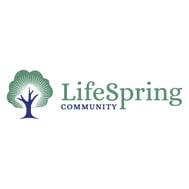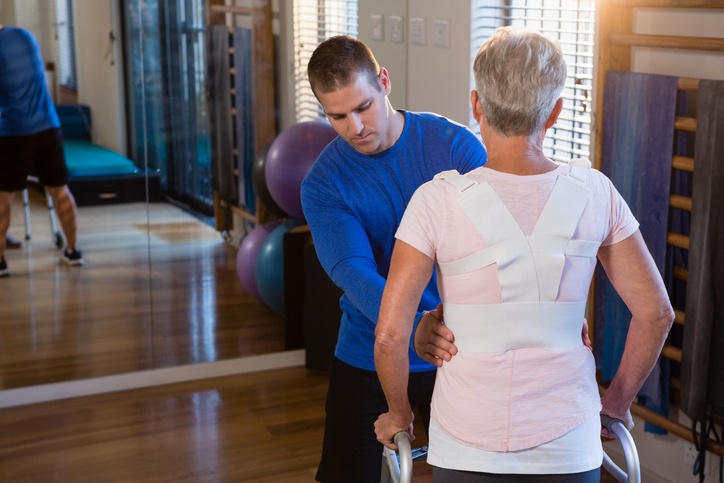Sometimes, people who are told they need short-term rehabilitation for a medical problem wonder why it's necessary. They don't realize how beneficial this type of treatment can be in their recovery and why it's well worth their time. Do you think you may need short-term rehabilitation? Here are some of the people who are considered candidates, along with a few considerations and warnings.
What Exactly Is Short-term Rehabilitation?
Maybe you're not quite sure what short-term rehabilitation means. Also known as short-term rehab, this is a therapy that can range from a few days to a couple of months. It's intended for people who've experienced health issues that have prevented them from functioning on their own.
One way to picture short-term rehab is to view it as a bridge between the hospital and home. This type of therapy is focused on recovery, helping people regain their strength, independence and confidence so that they can start managing and enjoying their lives again. Besides receiving physical therapy, patients may also get speech and occupational therapy.
Stroke Patients
Many people who've had a stroke can function by themselves. According to the American Stroke Association, about 50 to 70 percent of stroke patients are able to function independently following a stroke. But there are others who need short-term rehab care.
- Physical therapy for stroke patients may include motor-skill exercises, which are designed for strengthening muscles and improving coordination. It may also involve exercises for strengthening swallowing ability.
- Mobility training can entail patients using a wheelchair, cane, walker or ankle brace.
- There's also range-of-motion therapy, which uses specific treatments and exercises for easing muscle tension.
- Constraint-induced therapy, also known as forced-use therapy, focuses on moving a patient's affected limb so that it can function better.
- Speech therapy and occupational therapy address cognitive problems that can develop from having a stroke. These therapies help people regain their cognitive abilities, such as problem-solving, memory, safety awareness and social skills.
Individuals Who've Had Joint Replacement Procedures
If you need to have a joint replacement procedure, such as a hip or knee replacement, you'll need short-term rehabilitation therapy before you can resume your daily routine at home. This type of short-term treatment consists of four main components, which include:
- Therapeutic exercises—These involve certain exercises for rebuilding strength and coordination after having a stroke.
- Gait training—This type of physical therapy is for improving the ability to stand and walk. It can be helpful in regaining mobility independence even if an adaptive device is needed.
- Transfer training pertains to using alternate and safe transfer techniques for moving your body from one surface to another one. For example, it teaches you how to get in and out of a shower or how to be able to carefully get on a chair or bed and then get off of it.
- Lessons on how to resume daily activities—Following an illness or operation, you'll need to be instructed on when and how to get back to your regular activities.
Patients Who Have Undergone Major Surgery
If you're like most people who've had to undergo major surgery, you probably want to get back home as soon as possible. But for your recovery to be successful, you may need to go to a short-term rehabilitation facility. This is especially the case for older people. How long you have to stay mostly depends on the type of surgery you've had and how fast you recover.
Other Candidates Who Can Be Helped from Short-term Rehab
Others who can be helped from short-term rehab include:
- People who seem to be declining physically—Those who are having a hard time functioning physically can be significantly affected in almost every aspect of their life. What's more, caretakers can also be stressed when caring for a loved one or family member who's physically doing downhill. Thus, it's critical to get the proper help by receiving short-term rehabilitation.
- Individuals who suffer from mental or cognitive decline can also benefit by receiving short-term rehabilitation. The goal of cognitive rehabilitation is to improve a person's mental abilities that have been affected from conditions, such as memory loss or brain damage.
Considerations and Warnings
- When evaluating a short-term rehab facility, be sure it's licensed and certified.
- Check the overall reputation of a facility, making sure it's known for giving high quality care.
- Ensure that family members of patients are encouraged to get involved in a patient's plan of care and that they're offered roles in helping the patient recover.
- Visit a facility to determine if it's clean, inviting and looks modern. In other words, does it seem like a comfortable temporary home while you or a loved one is recovering?
For more information, visit Church Home Lifespring. We have the latest equipment and technology so that recovery can occur quickly and is successful. Please contact us and learn more about how we can help you or a loved one recover.

